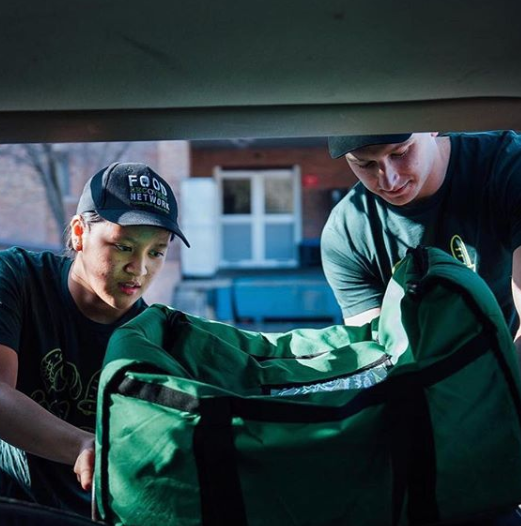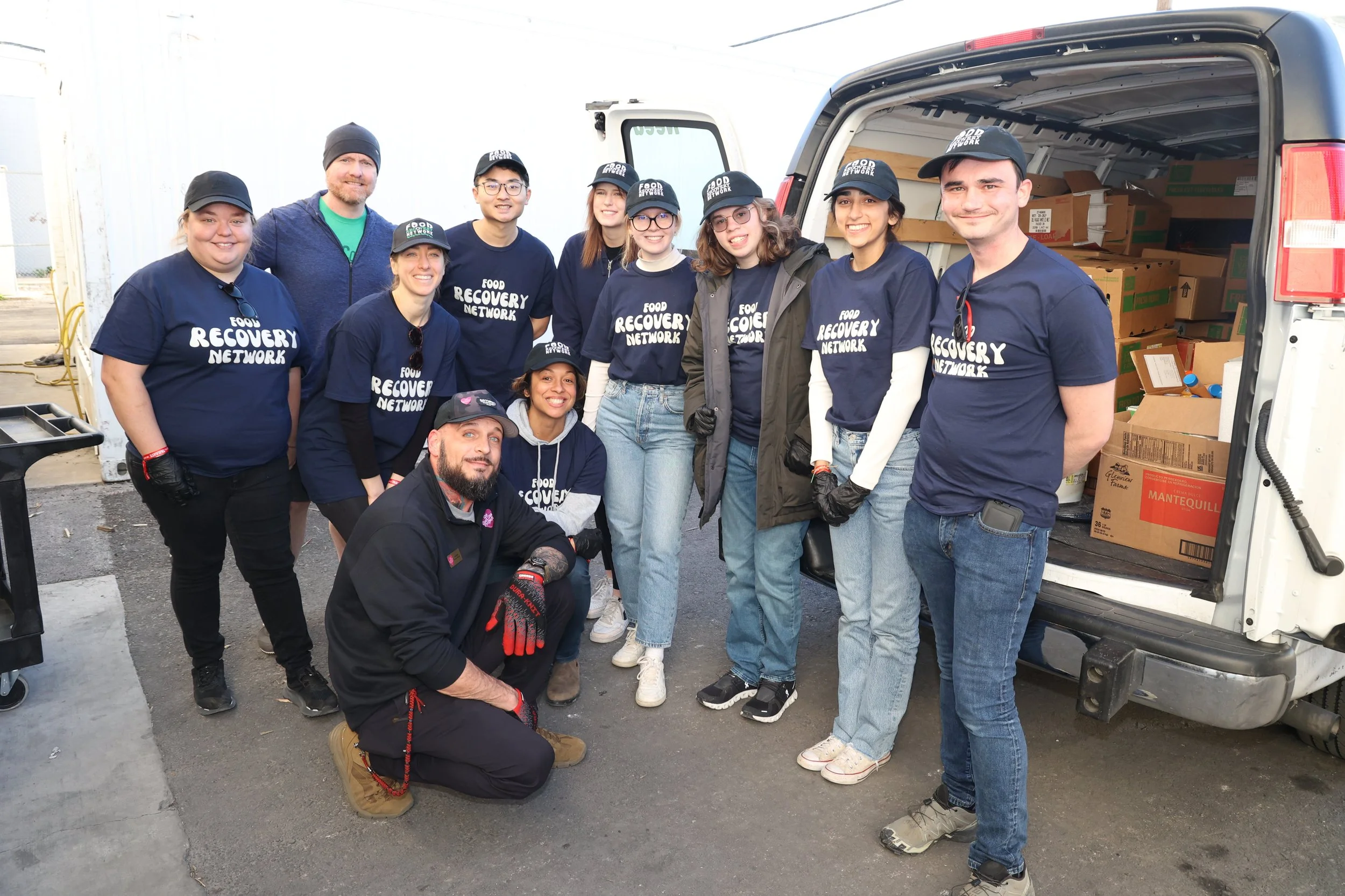Jamie Mahoney's food justice journey started when she took on a sustainability internship with Elmhurst College's dining services. As an intern, one of her very first projects was to start an FRN chapter for her campus. In the last year, they've recovered more than 600 pounds of food! Read below to find out more about this awesome FRNd.
THE BASICS
Name: Jamie Mahoney
School: Elmhurst College
Year of Graduation: 2016
Major/area of study: Urban Studies (with a Public Services focus); minors in Communication Studies, Intercultural Studies (with a International Studies focus), and Sociology
Position on leadership team: President
WE ASKED JAMIE...
Where are you from? Schaumburg, IL native.
How did you get involved in FRN? I was the only student representative on my school’s Sustainability Committee last year. I asked if they had any internship opportunities available because I could get funding through a grant if I could find one (which did not happen in time). I came back this year and was offered a newly designed, paid Sustainability Internship funded through the Dining Services (Chartwells) on my campus. Here, the Director of Dining Services, my immediate supervisor, was told about FRN and wondered if I could start it. So, as one of my first tasks for this position, I established the chapter on my campus.
Can you share a favorite FRN memory? Out of all my FRN stories, I will never forget the experience of our biggest recovery yet: It was the Friday afternoon before winter break. Students, faculty, and staff were nearly all gone for the semester. The campus would be closed for two weeks, meaning there would be no cafeteria operations, meaning there was going to be food that was going to be thrown away. I had planned to make a recovery that day, but I would have never expected the amount of food that I was handed. One of the kitchen supervisors began handing me cart after cart of food. Nearly every refrigerator and freezer was emptied for me to take. I was left with three tall carts of food loaded with boxes and boxes of fruit, vegetables, dairy products, and condiments, and even bags of eggs and milk. Rows and rows of pastas, meats, sides, and breakfast items. I was overwhelmed, exhilarated, and joyful to see how much food I was about to donate. But, I was under-prepared and had to work under the biggest time crunch. The pantry I was donating to was about to close for the weekend, all student help had left me, and the kitchen was trying to close as well. But I knew I had to get this done. Thankfully, my friend came to the rescue to help me package and transport this food. About thirty minutes into packaging, we began to understand just how big of an undertaking this was going to be…but it had to get done. The supervisor that had given us the food also volunteered to stay to wash all of the dishes. With that help, we packed and packed and packed and packed. After two hours, we loaded those carts back up with “grab and go” bags for the families at the pantry we donate to and loaded up the SUV. With food reaching from front to back, floor to ceiling, we traveled to the pantry, just as they were closing. Their fridges had never been this fully stocked; their shelves were overflowing. And the best part about it all: It came right in time so the families could have a secure meal for the holidays.
With our combined efforts, although we are just three people, we were able to donate almost 300 pounds of food to more than 100 families.
What's one thing you love about Elmhurst College? I always promote how much I love the RESOURCES and OPPORTUNITIES at Elmhurst College. As a transfer student, I wanted to make sure I made the best experience for myself, so I opened myself up to any and all opportunities that came my way. From scholarships, grants, stipend research projects, presenting my research at conferences, job offerings, becoming an elected official for the City of Elmhurst…Elmhurst College offers it all. It takes a little bit of digging to find all of these life-changing opportunities, but it is entirely worth it. These opportunities have been more impactful to my personal, professional, and academic growth than anything else in my entire life.
What are your ambitions post-graduation? I actually have a diabolical plan for after I graduate. Because of all of the opportunities I have taken at Elmhurst College, there are several different paths I can choose to follow. One of them, in particular, involves staying with the college. Right now, there is no Sustainability department/Office/Faculty/Staff on campus -- there is just a Sustainability Committee, comprised of key stakeholders on campus. Through my Sustainability Internship, I have witnessed first-hand the need for some sort of Sustainability Coordinator/Director at Elmhurst College. So, my very ambitious goal is truly leave the biggest sustainability-focused legacies on my campus, meet with the VP of Finance, present my findings and summaries of my current work as intern, and propose a new job title (complete with description) to the college and recommend they look into it. Then, during that consideration time, I will earn my Master’s degree in either Sustainability, Urban Planning and Policy, or Public Administration, just in time to apply to the job that will hopefully open at the college. And who better to apply than someone who suggested it?
What other organizations are you a part of? I have always been involved in a variety of organizations, because involvement is my biggest passion in life. From being an active business member in two different Chamber of Commerces to being the chair of student committees, I get involved in a variety of organizations. No matter what I get involved in, I always make sure to utilize my leadership skills and encourage others to step up and take action. The titles and specifics are not as important to me as the overall message: I am an active participant in life and value making a positive difference through my work.
Interested in learning more about Elmhurst College's chapter? Check them out here.




















